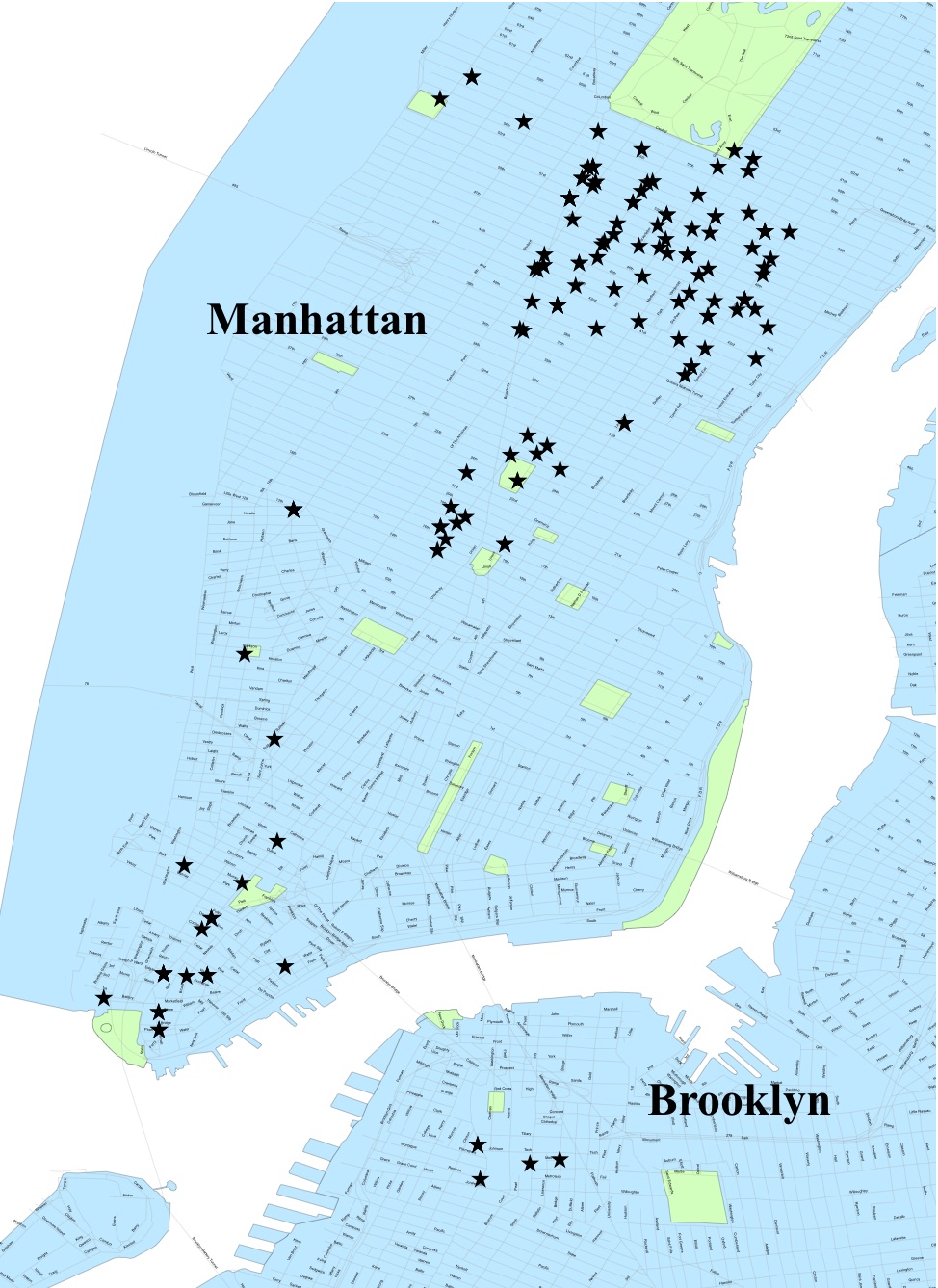Five Months On, Bike Access to Buildings Law Showing Results
 The location of every building with an official bicycle access plan. Image: City Council [PDF]
The location of every building with an official bicycle access plan. Image: City Council [PDF]On the eve of Bike to Work Day, the New York City Council released new stats today measuring the impact of the Bicycle Access to Buildings Law. Five months after taking effect, the law has made it easier for well over a thousand New Yorkers to bike to work. An estimated 1,764 bike commuters now have somewhere to store their bike safely at work, thanks to the implementation of 176 "bicycle access plans."
The law requires commercial buildings with freight elevators to allow cyclists entry to the building, as long as their employer consents to have bikes in the workplace. Surveys have repeatedly shown that New Yorkers who bike cite the lack of secure parking as the number one reason they don’t ride to work.
According to DOT statistics, 346 tenants have filed formal requests for their buildings to create bike access plans. Many of those requests are still pending, with the buildings within the deadline for compliance. That’s a level of participation "beyond my wildest expectations," said Council Member Gale Brewer, one of the law’s sponsors.
The real impact of the Bike Access Law might be far greater, said Transportation Alternatives’ Wiley Norvell. "For every one of the requests that makes its way to the DOT," he said, "there are many more instances of buildings that are implementing bike access policies of their own accord." Watching City Council pass such a pro-cycling law was an impetus, he argued, for many building managers and landlords to better accommodate cyclists.
For example, the press conference announcing these numbers this morning — headlined by Brewer, Council Speaker Christine Quinn, and transportation chair Jimmy Vacca — was held in front of Seven World Trade Center, where developer Larry Silverstein installed a slew of bike amenities without the prompt of a formal request for bicycle access. Another landlord with a major portfolio of office buildings, Trinity Real Estate, has also implemented bike amenities in many of its properties.
Although the law is an important and innovative way to provide bike parking in New York City, there are still a few holes. In some buildings, for instance, freight elevators shut down at 5:00 PM, leaving cyclists unable to bring their bike out of their office after work. Brewer noted that bike access plans are concentrated in Manhattan, and especially Midtown. "I’m hoping that in other parts of the city, other people will be able to do this too," she said.
There aren’t any plans to revise the law just yet, according to Brewer and Norvell. "We’re starting to get a sense of ways to expand or improve it, but we’re only five months in," said Norvell. "It needs some room to breathe." He expects a second look at the law to come in a year or two.